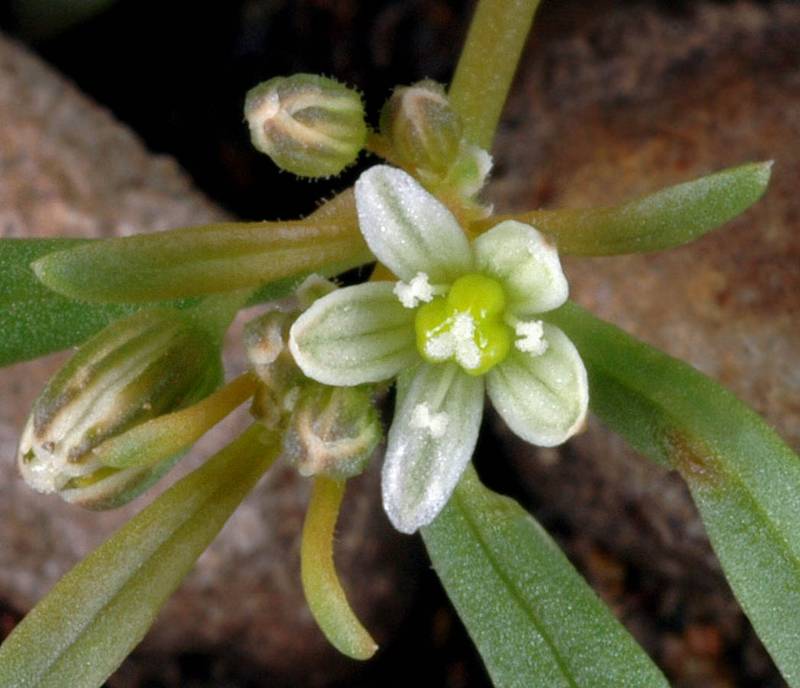Hosted by the University of Washington Herbarium, Burke Museum
Publication: Sp. Pl. 1: 89. 1753.
Origin: Native
Herbarium search: CPNWH
Notes: FNA4: "Some authors consider Mollugo verticillata a native of the New World tropics that spread northward into subtropical and temperate regions (M. L. Fernald 1950; H. A. Gleason and A. Cronquist 1991). If so, the species apparently spread very rapidly, because herbarium specimens exist from Ohio in 1828, Michigan in 1837, and Maine in 1837. J. Chapman et al. (1974) presented archaeological evidence of pre-Columbian presence of M. verticillata at a site in Tennessee.
Morphology and anatomy of the species are well studied. T. Holm (1911) investigated anisophyly in Mollugo verticillata and stated that the leaves are not "pseudo-verticillate," as described by some earlier authors, but are truly opposite. M. A. Payne (1933, 1935) conducted morphologic and anatomic analyses of the leaf, stem, root, flower, and seed of the species. Pollen morphology was examined by N. Mitroiu (1971).
Several subspecific taxa have been described for Mollugo verticillata, but these are poorly understood; attempts to subdivide the species in North America for this treatment failed. The species is extremely morphologically variable, especially with regard to leaf shape, overall size, and habit. There seem to be no direct correlations between habitat type and morphology.
Mollugo verticillata possesses intermediate C3-C4 photosynthetic pathway characteristics, such as well- defined bundle-sheaths with numerous C4-like chloroplasts, distinct palisade and spongy parenchyma as in C3 plants, and intermediate light to dark ratios of CO2 evolution, which have made the species of particular interest in studies of the evolution and biochemistry of both photosynthetic pathways (R. A. Kennedy et al. 1980)."
References:
Last updated 10/24/2023 by David Giblin.

